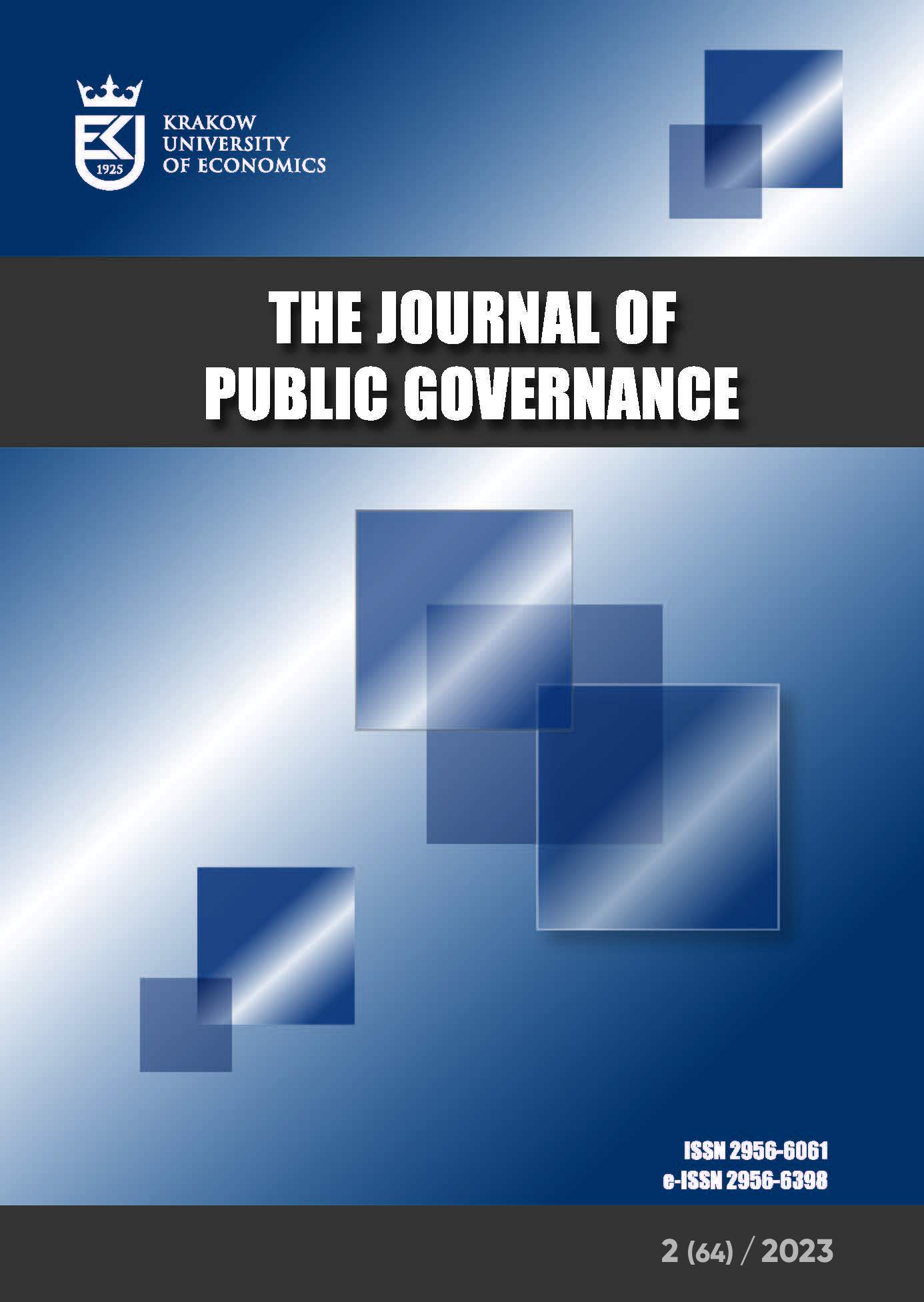Municipally owned companies as executors of tasks pertaining to municipal waste management
DOI:
https://doi.org/10.15678/ZP.2018.46.4.05Keywords:
Municipal waste, municipally owned company, MOC, municipal waste installations, waste management, in-house ordersAbstract
Objectives: Services provided in the general economic interest constitute a fairly significant research field with regard to public management, involving different local governing tasks, including municipal waste management. Full management of municipal waste services is carried out by individual municipalities (from July 2013 onwards), therefore the purpose of the article is pinpointing the municipal waste management providers (Municipally Owned Companies) in Polish provincial cities, including those using the in-house model.
Research Design & Methods: The process of identifying the entities engaged in waste management as municipally owned companies (referred hereafter as “MOCs”) is preceded by a theoretical analysis of the peculiarities of municipal waste and municipal waste management, both of which are regarded as crucial and having imminent economic and social consequences. During that theoretical analysis the authors applied the European Union hierarchy on waste management in establishing the following waste management criteria: achieving of a specified rate of recovery and recycling; standardisation of the magnitude and structure of waste flows directed to incineration plants and landfill; and comprehensiveness of the waste management system.
Findings: It has been established that MOCs (including those operating via in-house orders) are the principal type of entities which provide municipal waste management services in the cities included in the analysis.
Implications / Recommendations: The article shows a clear need for further research on the efficiency of MOCs regarding the provision and performance of public utility services and tasks.
Contribution / Value Added: The conducted research provides evidence supporting the statement that municipal waste management is performed mostly by MOCs, which are entrusted with public utility tasks through tender procedures or, more frequently, via in-house orders. Such entities co-operate with the private sector, with private sector firms often owning specialised installations.
Downloads
References
Bojarski, L. (2016). Kto i kiedy skorzysta z in house w odpadach? Przegląd Komunalny, 5, 34–35.
Communication from the Commission to the European Parliament, the Council, the European Economic and Social Committee and the Committee of the Regions (2017). The role of waste-to-energy in the circular economy, COM/2017/034 final, Brussels.
Directive 2014/24/EU of the European Parliament and of the Council of 26 February 2014 on public on public procurement and repealing Directive 2004/18/EC.
Famielec, J. (2017). Gospodarka odpadami komunalnymi jako działalność gospodarcza realizowana w ogólnym interesie gospodarczym. In M. Kożuch (Ed.), Pomoc publiczna. Doświadczenia wybranych sektorów gospodarki (pp. 117–148). Kraków: Fundacja Uniwersytetu Ekonomicznego w Krakowie.
Famielec, J., & Famielec, S. (2017). Pomoc państwa i zamówienia in house w procesach i zakładach termicznego przekształcania odpadów komunalnych. In M. Kożuch (Ed.), Pomoc publiczna. Doświadczenia wybranych sektorów gospodarki (pp. 151–171). Kraków: Fundacja Uniwersytetu Ekonomicznego w Krakowie.
Folmer, H., Gabel, L., & Opschor, H. (1996). Ekonomia środowiska i zasobów naturalnych. Warszawa: Wyd. Krupski i S-ka.
Gumniak, A., & Mądry, T. (2016). Kryteria stosowania zamówień in house w świetle nowych dyrektyw. Przegląd Komunalny, 5, 83–84.
Journal of Laws 1990, no 16, item 95, as amended. Ustawa z dnia 8 marca 1990 roku o samorządzie gminnym (Dz. U. 1990, nr 16, poz. 95 z późn. zm.).
Journal of Laws 1996, no 132, item 622, as amended. Ustawa z dnia 13 września 1996 r. o utrzymaniu czystości i porządku w gminach (Dz. U. 1996, nr 132, poz. 622 z późn. zm.).
Journal of Laws 2013, item 21, as amended. Ustawa z dnia 14 grudnia 2012 roku o odpadach (Dz. U. 2013, poz. 21 z późn. zm.).
Journal of Laws 2016, item 1020. Ustawa z dnia 22 czerwca 2016 r. o zmianie ustawy – Prawo zamówień publicznych oraz niektórych innych ustaw (Dz. U. 2016, poz. 1020).
Journal of Laws 2017, item 19. Rozporządzenie Ministra Środowiska z dnia 29 grudnia 2016 r. w sprawie szczegółowego selektywnego zbierania wybranych odpadów (Dz. U. 2017, poz. 19).
Journal of Laws 2017, item 723. Rozporządzenie Rady Ministrów z dnia 6 marca 2017 r. zmieniające rozporządzenie w sprawie opłat za korzystanie ze środowiska (Dz. U. 2017 poz. 723).
Karpiński, M. (2016). Jak in house wpłynie na rynek odpadów komunalnych. Przegląd Komunalny, 10, 24–27.
Kiełbus, M. (2016). Gra o in house – koniec kolejnego sezonu. Przegląd Komunalny, 7, 37–38.
Official Gazette of the Republic of Poland 2016, item 784. Uchwała nr 88 Rady Ministrów z dnia 1 lipca 2016 r. w sprawie krajowego planu gospodarki odpadami 2022 (M.P. 2016, poz. 784).
Podgórski, S. (2016). Dopuszczalność prawna i zalety powierzenia typu: in house. Przegląd Komunalny, 4, 31–32.
Uciński, T. (2016). Model in house – fakty a nie mity. Przegląd Komunalny, 6, 90–93.
Uciński, T. (2016). Skuteczniej z in house. Przegląd Komunalny, 5, 104–105.
Ziemski, K.M., Karciarz, M., & Kiełbus, M. (2016). In house a odbiór odpadów z nieruchomości mieszanych. Przegląd Komunalny, 10, 34–37.
Downloads
Published
How to Cite
Issue
Section
License
Open Access, licence: CC-BY 4.0




